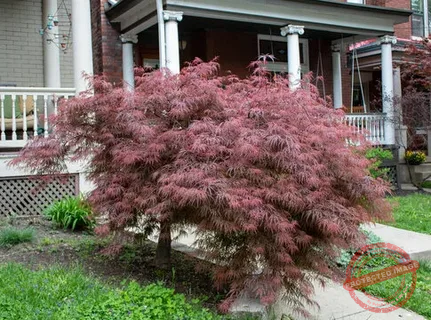Gardening is a rewarding and therapeutic activity that allows you to connect with nature, cultivate beautiful plants, and enjoy fresh produce. However, it also comes with its share of challenges, one of the most common being dealing with pests. Among these pests, squirrels can be particularly troublesome. These agile and intelligent creatures can wreak havoc on your garden, digging up bulbs, stealing fruits and vegetables, and even damaging young plants.
Understanding the behavior and habits of squirrels is the first step in effectively keeping them out of your garden. Squirrels are attracted to gardens primarily because they offer a reliable source of food. They are notorious for their persistence and ability to overcome obstacles, which makes them a formidable opponent for gardeners. The key to success lies in employing a combination of strategies that deter these critters while safeguarding your plants.
In this comprehensive guide, we will explore the ten best ways to keep squirrels out of your garden. These methods range from physical barriers and natural repellents to habitat modification and scare tactics. By implementing these strategies, you can protect your garden from squirrel damage and ensure that your plants thrive.
10 Best Ways to Keep Squirrels Out of Your Garden
1. Install Physical Barriers
Fencing
One of the most effective ways to keep squirrels out of your garden is by installing a physical barrier such as a fence. A well-constructed fence can prevent squirrels from entering your garden and causing damage.
- Materials: Use materials that are difficult for squirrels to climb or chew through, such as metal mesh or hardware cloth.
- Height: Ensure the fence is at least 4 feet tall, as squirrels are excellent climbers.
- Depth: Bury the bottom of the fence at least 6 inches underground to prevent squirrels from digging underneath it.
- Top Barrier: Adding a top barrier that tilts outward can further deter squirrels from climbing over the fence.
Netting and Row Covers
Using netting or row covers is another effective way to protect specific plants or areas within your garden from squirrels.
- Netting: Cover fruit trees, berry bushes, and vegetable patches with bird netting or wildlife netting to keep squirrels from accessing your crops.
- Row Covers: Use lightweight row covers to protect young seedlings and delicate plants. These covers allow sunlight and water to reach the plants while keeping squirrels at bay.
2. Use Natural Repellents
Smell-Based Repellents
Squirrels have a keen sense of smell, and certain odors can be highly unpleasant to them. Using smell-based repellents can help deter squirrels from your garden.
- Peppermint Oil: Soak cotton balls in peppermint oil and place them around the garden. The strong scent of peppermint is known to repel squirrels.
- Garlic and Vinegar Spray: Make a spray using garlic and vinegar. Blend garlic cloves with vinegar, strain the mixture, and spray it around your garden. The pungent smell will deter squirrels.
Taste-Based Repellents
Taste-based repellents can also be effective in keeping squirrels away from your plants.
- Hot Pepper Spray: Create a hot pepper spray by mixing water with hot pepper flakes or powder. Spray this mixture on your plants to make them unappealing to squirrels.
- Commercial Repellents: There are several commercial squirrel repellents available that use natural ingredients to create an unpleasant taste for squirrels. Apply these repellents according to the manufacturer’s instructions.
3. Habitat Modification
Remove Food Sources
Squirrels are attracted to gardens primarily for the food they provide. Removing potential food sources can make your garden less appealing to them.
- Clean Up Fallen Fruit: Regularly clean up fallen fruits and vegetables from the ground to prevent squirrels from feasting on them.
- Secure Trash Bins: Ensure that trash bins are securely closed and not easily accessible to squirrels.
Prune Trees and Shrubs
Trimming back overhanging branches and dense shrubs can reduce the number of entry points into your garden.
- Tree Trimming: Prune tree branches that are close to your garden or house. Squirrels use these branches as bridges to access your garden.
- Shrub Maintenance: Keep shrubs well-trimmed and avoid planting them too close to garden beds.
Remove Bird Feeders
Bird feeders can attract squirrels to your garden. Consider removing them or using squirrel-proof feeders.
- Squirrel-Proof Feeders: Invest in bird feeders designed to prevent squirrels from accessing the bird food.
- Feeder Placement: Place bird feeders away from garden beds and use baffles to make it difficult for squirrels to reach them.
4. Employ Scare Tactics
Motion-Activated Sprinklers
Motion-activated sprinklers are an effective way to startle and deter squirrels from your garden.
- Installation: Set up motion-activated sprinklers around the perimeter of your garden. When a squirrel triggers the sensor, a burst of water is released, scaring the squirrel away.
- Adjustment: Adjust the sensitivity and range of the sprinklers to ensure they cover the desired area.
Visual Deterrents
Using visual deterrents can also help keep squirrels at bay.
- Fake Predators: Place decoy owls or snakes around your garden. Squirrels are naturally wary of predators and may avoid areas where they perceive a threat.
- Reflective Objects: Hang reflective objects, such as CDs or aluminum foil strips, around the garden. The movement and glinting light can scare squirrels away.
Noise-Making Devices
Noise-making devices can be used to create an environment that is uncomfortable for squirrels.
- Ultrasonic Devices: Install ultrasonic devices that emit high-frequency sounds. These sounds are unpleasant to squirrels but inaudible to humans.
- Wind Chimes: Hang wind chimes around your garden. The noise and movement can help deter squirrels.
5. Companion Planting and Scent Deterrents
Companion Planting
Certain plants can act as natural repellents to squirrels. Companion planting involves growing these plants alongside your main crops to deter pests.
- Marigolds: Marigolds have a strong scent that can repel squirrels. Plant them around the perimeter of your garden or near vulnerable plants.
- Daffodils: Squirrels tend to avoid daffodils due to their bitter taste and toxic properties. Use them as a border plant to protect your garden.
Scent Deterrents
Using scent deterrents can create an unpleasant environment for squirrels.
- Essential Oils: Use essential oils such as lavender, rosemary, or eucalyptus. Soak cotton balls in these oils and place them around the garden.
- Used Coffee Grounds: Sprinkle used coffee grounds around your garden beds. The strong smell of coffee can help keep squirrels away.
6. Provide Alternative Food Sources
Providing alternative food sources can divert squirrels’ attention away from your garden.
Squirrel Feeders
Set up a squirrel feeder in a location away from your garden. Fill it with foods that squirrels prefer, such as sunflower seeds, peanuts, or corn.
- Feeder Placement: Place the squirrel feeder in an area that is easily accessible to squirrels but far from your garden beds.
- Refill Regularly: Keep the feeder stocked to ensure squirrels have a consistent food source, reducing their interest in your garden.
Nut Trees
Planting nut trees away from your garden can provide a natural food source for squirrels.
- Tree Placement: Choose a location that is far from your garden beds to minimize the chances of squirrels venturing into your garden.
- Tree Maintenance: Maintain the nut trees by pruning and harvesting nuts regularly to prevent overpopulation of squirrels.
7. Use Traps Humanely
If other methods fail, you may consider using traps to humanely capture and relocate squirrels.
Live Traps
Live traps allow you to catch squirrels without harming them. Once captured, you can relocate them to a suitable area away from your garden.
- Trap Placement: Place the traps near areas where you frequently see squirrel activity.
- Bait: Use bait such as nuts, seeds, or peanut butter to lure squirrels into the trap.
- Relocation: Relocate the trapped squirrels at least 5 miles away from your garden to prevent them from returning.
Professional Help
If you are uncomfortable trapping and relocating squirrels yourself, consider hiring a professional wildlife removal service.
- Licensed Professionals: Ensure that the service you hire is licensed and follows humane practices for wildlife removal.
- Consultation: A professional can assess your garden and recommend the best strategies for squirrel control.
8. Maintain a Clean Garden
Regular Cleaning
Keeping your garden clean and free of debris can make it less attractive to squirrels.
- Remove Debris: Regularly remove fallen leaves, branches, and other debris that can provide cover for squirrels.
- Weed Control: Keep weeds under control to reduce hiding spots and food sources for squirrels.
Harvest Promptly
Harvesting fruits and vegetables promptly can reduce the chances of squirrels feasting on your crops.
- Daily Check: Check your garden daily for ripe produce and harvest it as soon as possible.
- Storage: Store harvested produce in a secure location to prevent squirrels from accessing it.
Compost Management
Manage your compost pile to prevent it from becoming a food source for squirrels.
- Compost Bins: Use enclosed compost bins to keep squirrels out.
- Avoid Food Scraps: Avoid adding food scraps to your compost pile, as they can attract squirrels and other pests.
9. Secure Garden Structures
Greenhouses
If you have a greenhouse, ensure it is squirrel-proof.
- Sealed Structure: Check for any gaps or openings and seal them to prevent squirrels from entering.
- Ventilation: Use mesh screens for ventilation openings to keep squirrels out while allowing airflow.
Cold Frames
Cold frames can protect young plants from squirrels.
- Lids and Covers: Ensure that cold frames have secure lids or covers to keep squirrels from accessing the plants inside.
- Material Choice: Use sturdy materials for the construction of cold frames to prevent squirrels from chewing through.
Raised Beds
Raised beds can be an effective way to protect your plants from squirrels.
- Height: Build raised beds that are at least 18 inches tall to deter squirrels from climbing in.
- Netting: Use netting or wire mesh covers for additional protection.
10. Educate and Involve Your Community
Community Awareness
Raising awareness about squirrel control within your community can help reduce the overall squirrel population in your area.
- Workshops: Organize workshops or informational sessions on effective squirrel control methods.
- Flyers and Posters: Distribute flyers and posters with tips on how to keep squirrels out of gardens.
Cooperative Efforts
Working together with your neighbors can make a significant impact on squirrel control.
- Shared Strategies: Share successful strategies and techniques with your neighbors.
- Community Gardens: In community gardens, implement squirrel control measures collectively to protect everyone’s plots.
Conclusion
Dealing with squirrels in your garden can be challenging, but with the right strategies, you can protect your plants and enjoy a bountiful harvest. By combining physical barriers, natural repellents, habitat modification, and scare tactics, you can effectively deter squirrels from your garden. Providing alternative food sources and using traps humanely can also help reduce squirrel damage. Maintaining a clean garden, securing garden structures, and involving your community further enhance your efforts to keep squirrels at bay.
Remember, persistence and consistency are key when implementing squirrel control measures. Monitor your garden regularly, adjust your strategies as needed, and stay vigilant. With these ten best ways to keep squirrels out of your garden, you can create a safe and thriving environment for your plants.
FAQs
1. How can I tell if squirrels are damaging my garden?
Squirrels often leave telltale signs such as dug-up bulbs, missing fruits and vegetables, and gnaw marks on plants. You may also notice squirrel tracks or droppings in your garden.
2. Are there any plants that naturally repel squirrels?
Yes, plants like marigolds, daffodils, and certain herbs such as mint and rosemary can help repel squirrels due to their strong scents and bitter tastes.
3. How often should I apply natural repellents to keep squirrels away?
Reapply natural repellents such as peppermint oil, garlic spray, or hot pepper spray every few days or after rain to maintain their effectiveness.
4. Can squirrels damage garden structures?
Yes, squirrels can chew through wooden structures, netting, and even plastic. Using sturdy materials and regularly inspecting garden structures can help prevent damage.
5. What should I do if I catch a squirrel in a live trap?
Once you catch a squirrel in a live trap, relocate it at least 5 miles away from your garden to prevent it from returning. Ensure the new location is suitable for the squirrel.
6. Is it possible to completely squirrel-proof my garden?
While it may be difficult to completely squirrel-proof your garden, combining multiple deterrent methods can significantly reduce squirrel damage and protect your plants.
7. How can I involve my community in squirrel control efforts?
Organize workshops, distribute informational materials, and share successful strategies with your neighbors. Working together can enhance squirrel control efforts and protect community gardens.



